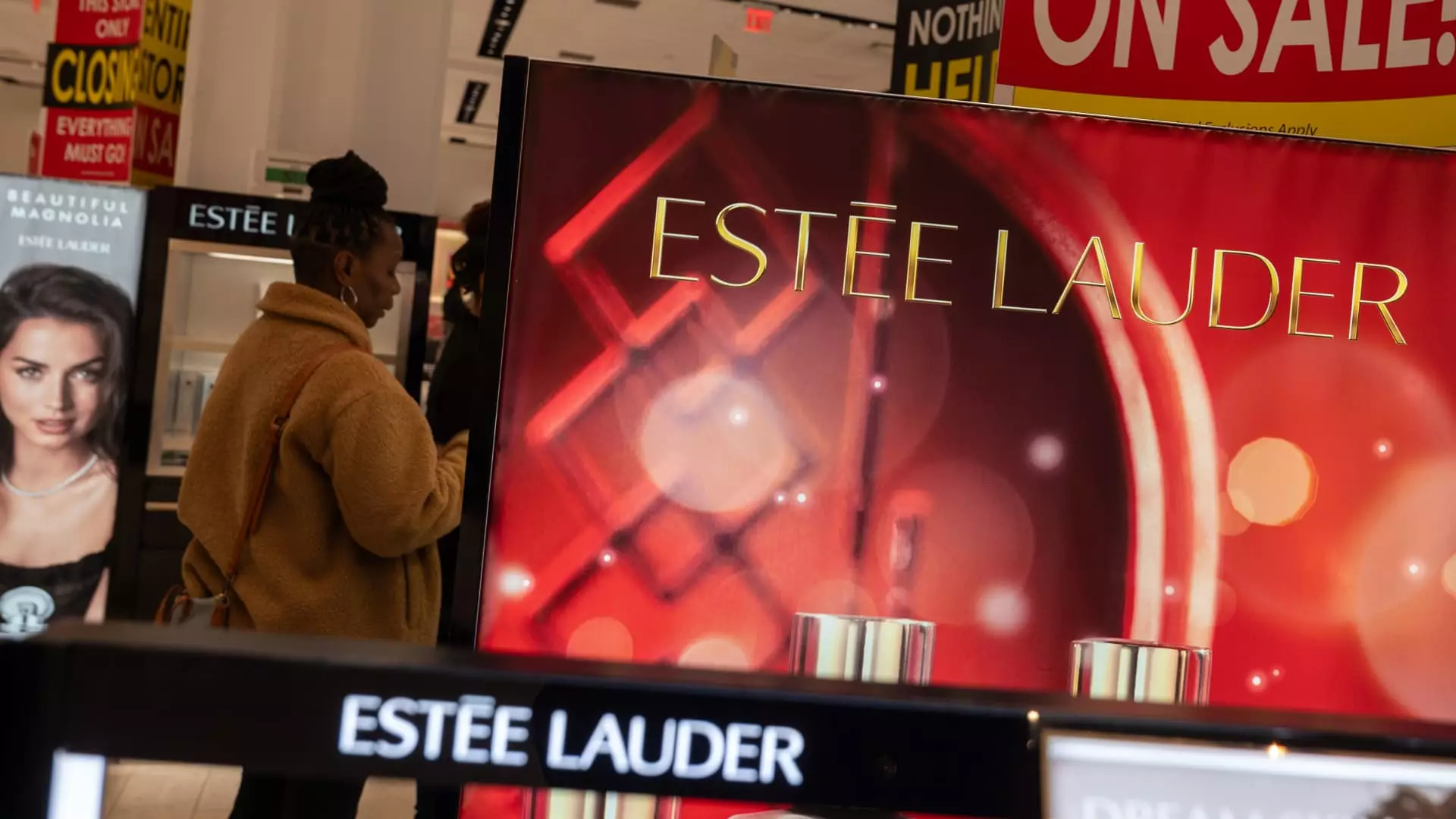This past week marked a significant downturn for various beauty stocks, with companies like E.l.f. Beauty and Estee Lauder grappling with disappointing financial reports. E.l.f. Beauty experienced its worst trading week since August 2018, suffering a staggering decline of nearly 29%. Despite reporting a revenue increase in its fiscal third quarter, the cosmetics company failed to meet expectations on adjusted earnings per share and subsequently lowered its full-year sales projections to between $1.3 billion and $1.31 billion, a reduction from an earlier forecast of $1.32 billion to $1.34 billion. This turn of events prompted multiple analysts from reputable firms such as Morgan Stanley, D.A. Davidson, and UBS to downgrade the stock to neutral or equal weight status, emphasizing concerns regarding the company’s revised guidance.
In tandem with E.l.f. Beauty’s struggles, Estee Lauder’s stock also took a significant hit, plunging 22% over the same week—its worst performance since November. The company announced plans to cut between 5,800 and 7,000 jobs by the end of fiscal 2026, a move driven by diminishing travel retail demand in Asia that is projected to impact net sales for the third quarter. Estee Lauder’s CEO, Stéphane de La Faverie, acknowledged during the earnings call that the company had lost its competitive edge, stating, “Simply said, we lost our agility. We did not capitalize on the higher-growth opportunities.” This admission, coupled with the disappointing job cuts, further fueled investor anxiety and caused shares to tumble, despite the company beating second-quarter revenue and earnings expectations.
Other beauty brands, including Ulta Beauty and Coty, were not immune to the adverse effects of this downturn. Ulta saw its shares dip by 9%, while Coty faced an 8% decline, marking Ulta’s worst week since April and Coty’s lowest performance since October last year. During E.l.f. Beauty’s earnings call, CEO Tarang Amin mentioned noticing “a little bit of softness” at Ulta in January, hinting at broader concerns affecting retailers in the beauty sector.
The beauty industry, similar to various other sectors in the U.S., is grappling with numerous external pressures, particularly regarding tariffs that pose a threat to profit margins. The announcement of new tariffs from China on select U.S. imports in reaction to President Donald Trump’s previous tariffs has added further uncertainty. Notably, E.l.f. manufactures approximately 80% of its products in China, leading Amin to express relief in light of the new tariffs being limited to 10%, especially when they had previously considered increases as substantial as 60%.
As the beauty sector navigates this tumultuous landscape, companies must adapt swiftly to the dynamics of consumer demand and external market pressures. Investors and stakeholders will be closely monitoring how these firms respond to their challenges, hoping for strategies that can rekindle growth and restore investor confidence in the beauty market.

